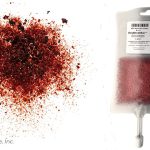Dr. Matthew Neal, co-director of the Trauma and Transfusion Medicine Research Center at the University of Pittsburgh School of Medicine and director of emergency general surgery at UPMC, will lead a new $12.1 million trauma research program funded by the National Institute of Health/National Heart Lung and Blood Institute (NIH/NHLBI).
The program will allow physician-scientists to continue pursuing treatment for the leading cause of death after injury: Uncontrolled bleeding. These patients can develop a challenging condition called “trauma-induced coagulopathy,” which involves abnormal blood clotting.

Dr. Matthew Neal
“Patients with trauma-induced coagulopathy are at risk for both bleeding and clotting complications that can be life threatening,” said Neal. “This grant extends nearly a decade of work to try to eliminate this merciless and vexing condition. We have combined a team of experts from around the globe to understand the basic mechanisms of what happens in blood vessels and organs after injury, and how we can intervene to improve outcomes.”
Since its initial funding in 2013, the Trans-Agency Consortium for Trauma Induced Coagulopathy (TACTIC) program has proven to be a collaborative powerhouse, resulting in over 200 peer-reviewed research publications and groundbreaking discoveries in understanding the intricate relationship between dysregulated inflammation, coagulation and fibrinolysis (blood clotting problems) following trauma.
TACTIC’s innovative approach, built on a partnership between different types of scientists, clinicians, clinical trials and a specialized biorepository, served as the basis for the NHLBI-funded Accelerating COVID-19 Therapeutic Interventions and Vaccines (ACTIV4) program. Under the leadership of TACTIC investigators, ACTIV4 played a critical role in rapidly uncovering insights related to treating blood clotting thrombotic issues in COVID-19 patients, highlighting TACTIC’s ability to turn research into practical solutions.
TACTIC research previously demonstrated the life-saving potential of plasma transfusion in severe trauma cases through carefully controlled experiments; however, the precise mechanisms behind this therapy remain a puzzle.
The new grant will, in part, fund a project, titled “Endothelial Dysfunction and Restoration in Trauma Induced Coagulopathy,” that will explore how plasma transfusions can help restore the health of the endothelium — a specialized layer of cells lining the inside of blood vessels — and test innovative therapies aimed at improving the outcome of trauma patients. It will also help researchers better understand the role of the endothelium in regulating the body’s response to trauma-related blood clotting.
“When we suffer from injuries, blood clotting prevents excessive bleeding. Surprisingly, trauma patients often lose the ability to make their blood clot. Our team has worked to unravel the mystery behind these clotting problems,” said Dr. Kalev Freeman, TACTIC investigator and director of the Larner College of Medicine’s Trauma Physiology Lab and associate professor of emergency medicine and pharmacology at the University of Vermont. “We discovered that injury to the endothelium — the delicate, contiguous surface connecting every blood vessel in the body — is a key mechanism. We are using this information to develop treatments that will help trauma patients survive and recover.”








